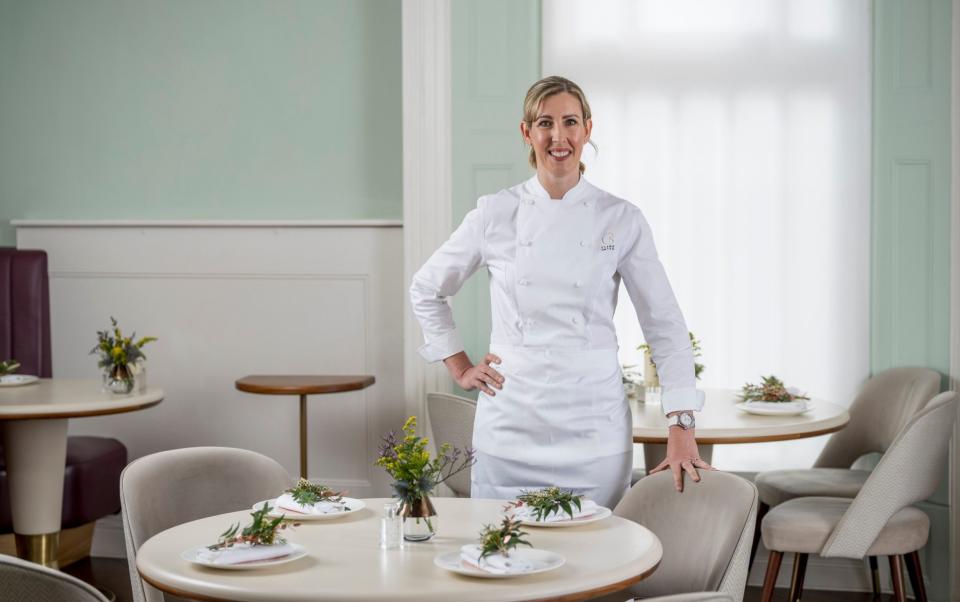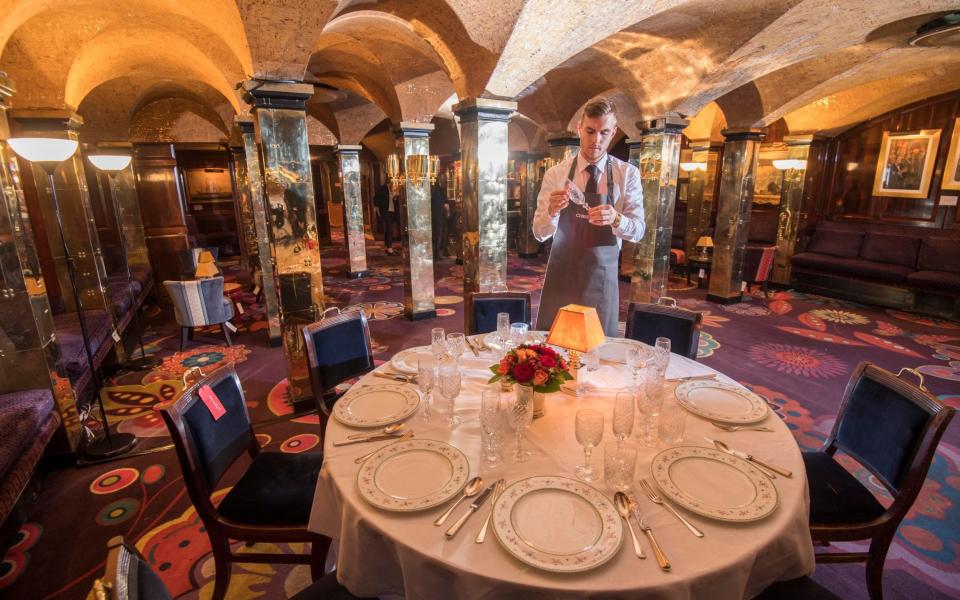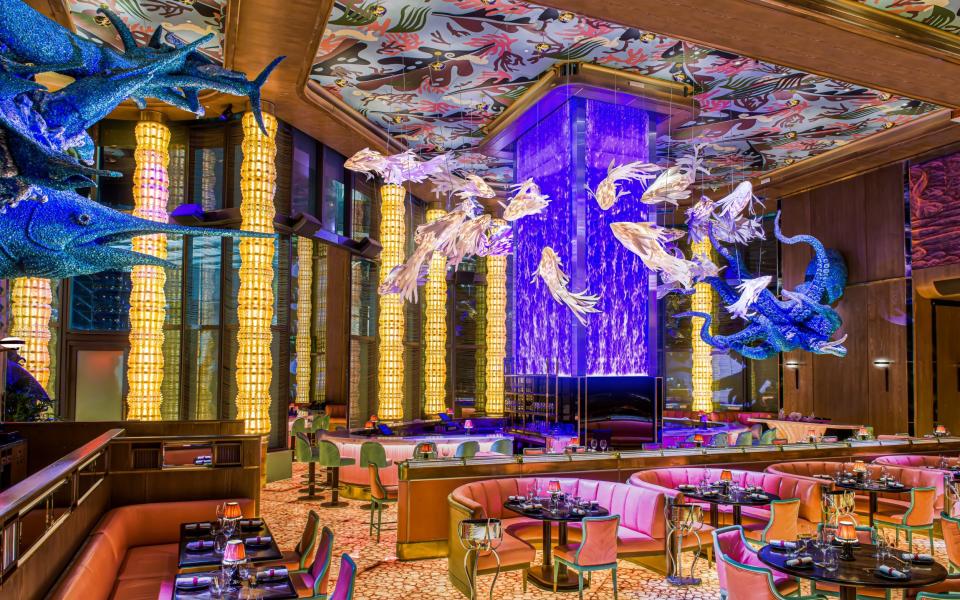Would you pay hundreds of pounds to skip the queue for a restaurant?

Annabel’s, the private member’s club in Mayfair’s Berkeley Square, prides itself on being one of the most exclusive venues in London, if not the world. This is the watering hole of royalty and rockstars, where everyone from Mick Jagger to Princess Beatrice heads to wet their beaks. It is even said to be the only club Queen Elizabeth II ever went to. Security is tighter than a Swiss bank vault.
Prospective members must apply with a letter of recommendation from another member before their application will be considered by a committee. Then there are the fees, which currently stand at £3,750 per year, plus a £1,850 joining list. It has been reported that more than 10,000 people are on the waiting list. The only way to access the club’s opulent rooms is to be a member, or the guest of one.
That is where Appointment Trader, a website where you can buy and sell reservations, comes in. Since it was founded in 2021, the company has quickly grown in the US, especially New York, whose cut-throat restaurant culture makes London look like a parish tea party. Customers can bid on slots, which are priced according to demand. Bookings at the most in-demand spots at peak times can go for hundreds of dollars, or more, while the top resellers can make up to £56,000 ($70,000) a year.
According to the site’s founder, Jonas Frey, London is quickly following New York’s lead. “New York was the market where it took off very quickly,” he says, speaking from his home in Miami. “But we had a lot of travellers coming from the US to London, so that’s when it started taking off there too.
“We only work when there’s over-demand,” he adds. “Paris and London are kind of slow in the winter, but pick up like crazy in the summer.” If you are a visiting potentate, determined to check out all the best places in a short space of time, Appointment Trader enables you to simply pay for it.
Appointment Trader’s list of the UK’s most in-demand restaurants is a pantheon of fancy spots: Core by Clare Smyth, Novikov, Sexy Fish.

More controversially, the site also lists Annabel’s depending on the day of the week. Reservations at Annabel’s are listed for anything between £92 and £214 for a prime weekend slot. The possibility that they are available for sale is likely to alarm purists, accustomed to thinking everyone there is either a member or a guest of one.
“What we’re rolling out for clubs like Annabel’s is that a member can sign up [to Appointment Trader] and then you can bid to sit at a table with a member,” Frey says. You become the member’s “friend”, temporarily, for a fee, and they grant access.
One wonders why someone paying nearly £4,000 to be a member of Annabel’s would want to sell on their access for little more than pocket money, but Frey says it is surprisingly common.
“What’s funny about private clubs is you get wealthy people, but you also have people who want to look wealthy. They spend more money than they should. So they love it when they can get £1,000 here and there.”
“I spoke to a senior figure at Annabel’s on a Zoom call,” Frey laughs. “He hates me with a passion. He said if they ever find out who is doing this, [the member] is out.”

Annabel’s strongly rejects the idea that access can be bought in this way. “It is not permitted for any member to sell or offer for sale, directly or indirectly, any table, reservation, proposal for membership, or access to the Club in any manner whatsoever,” says Tom Pascall, the PR manager. “It is not permitted for any person (whether a member or otherwise) to gain access to the club or to apply for membership via any third-party concierge service(s), or to assist any person to do the same.”
In one sense, Appointment Trader is simplifying a market that has always existed. Frey, a software engineer, was inspired to start the site in 2021 after finding himself unable to secure a booking to renew his driving licence. “I thought, ‘How is it possible that I can’t pay for a spot in line?’” he told The New Yorker earlier this week. Aside from restaurants, his site offers everything from private shopping sessions – customers will pay hundreds of pounds for the right to shop at Hermès in Paris – to medical appointments, which are hard to get hold of in some parts of the US.
“It’s just a market,” Frey says. “When we started, we got a cease-and-desist letter from practically every large chain. They wanted to be taken off the site. They said we were just a bunch of hobos trying to make a quick buck. But nobody made Appointment Trader before we did, because it’s very complicated.” The platform takes 30 per cent of the transaction, but must contend with no-show fees, spoof reservations, fake credit cards and hostile restaurants.

If the whole thing feels starkly mercantile, it’s also true that one way or another, popular restaurants have always been rationed. Some places do it by queue, or price, or whether you went to school with the maître d’, or tipped like a lottery winner last time, or are bringing Joan Collins and Leonardo DiCaprio to plumb the depths of the wine list.
“The old system was complicated and expensive because there was no competition,” Frey says. “There were hustlers, but they would charge an arm and a leg for a reservation. But our average take is $100 – it’s a young professional that wants to take a date out, or their boss.”
In the internet era, new booking skills have emerged: the tacticial Instagram message to a sommelier, or knowing exactly when to be online to access a new batch of reservations. Sites such as Resy and Sevenrooms build comprehensive data on diners, which means restaurants can portion out access and special treatment. They might know if you prefer a certain kind of complimentary drink, but they will also know if you are stingy.

The Devonshire, in Soho, a pub with a restaurant above it by Piccadilly Circus, is perhaps the most popular new London opening of the past year. They reserve slots weekly, with new ones opening up on a Thursday. (Appointment Trader lists The Devonshire, although confusingly gives the address of a pub of the same name in Balham, which is less likely to have a high resale demand for places.)
“Weird things are happening,” says Oisin Rogers, the co-owner of The Devonshire. “I was told that one of our tables appeared on eBay, which is bonkers. None of us have any experience of this. It’s quite an embarrassing problem to have. We’re in the business of making sure people feel comfortable, safe, happy and looked after. We want to be able to say yes. Secondary markets are really out of our hands.
“But we want to be fair, and if someone makes a booking we would hope they would come along and have a meal. If we thought they had an ulterior motive, we would cancel the booking. We have done that a couple of times, when concierge companies have booked multiple reservations under a placeholder name. It’s not in the spirit of what we are doing.”
Frey, however, says other restaurants are taking a different view of the situation. They are realising that the secondary market implies an opportunity for them to cut out the middle-man and take the margin for themselves. We all accept surge pricing in taxis: why not in restaurants, too?
“The funny thing is that restaurants all pretend as though they weren’t businesses, that they were some esoteric club that doesn’t need to make money,” Frey says. “But in the US we have restaurants that are on-boarded with us, and filling their own bids. They can monetise being oversold for Formula 1, that sort of thing. It’s beautiful, because you can’t tell online whether it is a reseller selling the table, or the restaurant itself.”
It might not be long before restaurants in London, which like their US counterparts operate on tight margins at the best of times, realise that they can make money from their popularity, as well as the prices on the menu. Maybe even Annabel’s.

 Yahoo News
Yahoo News 
